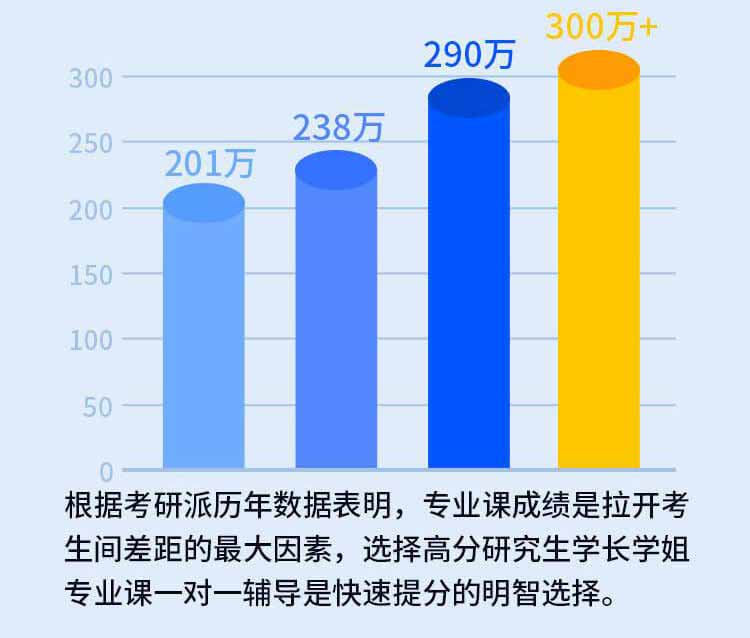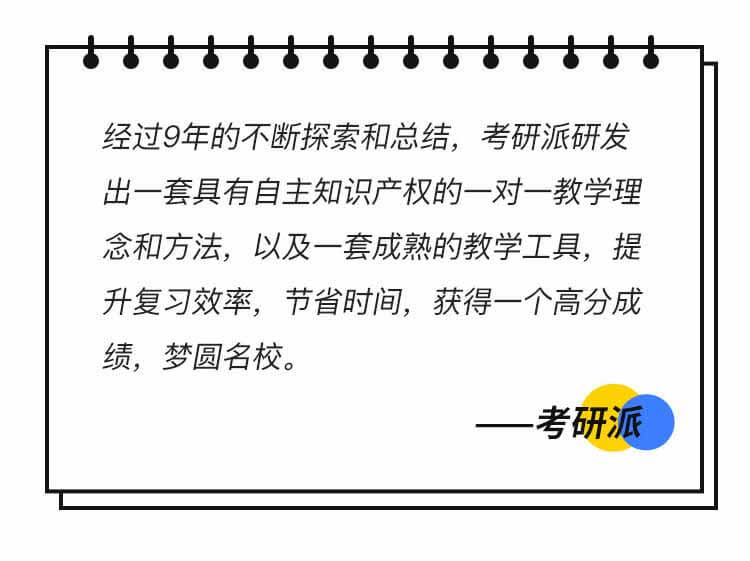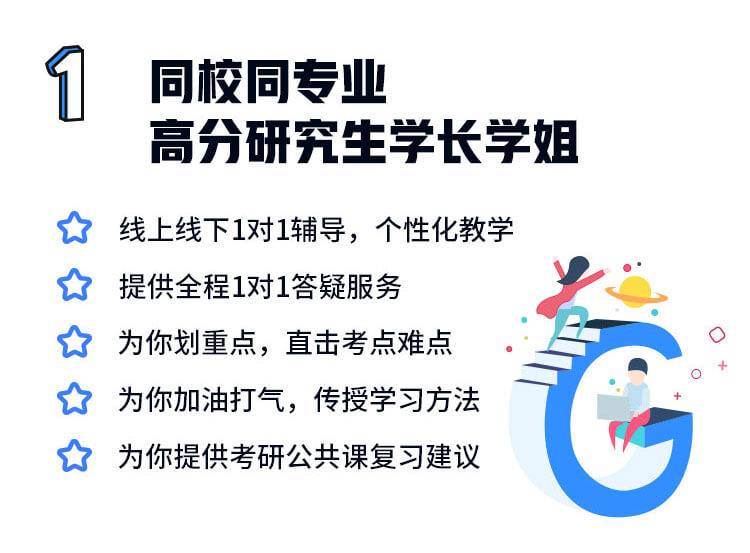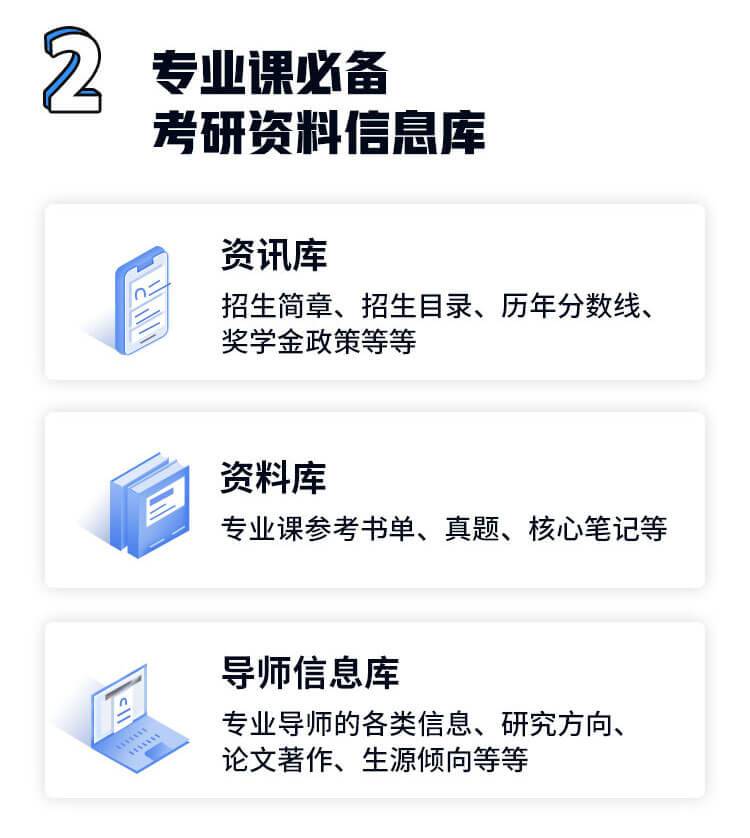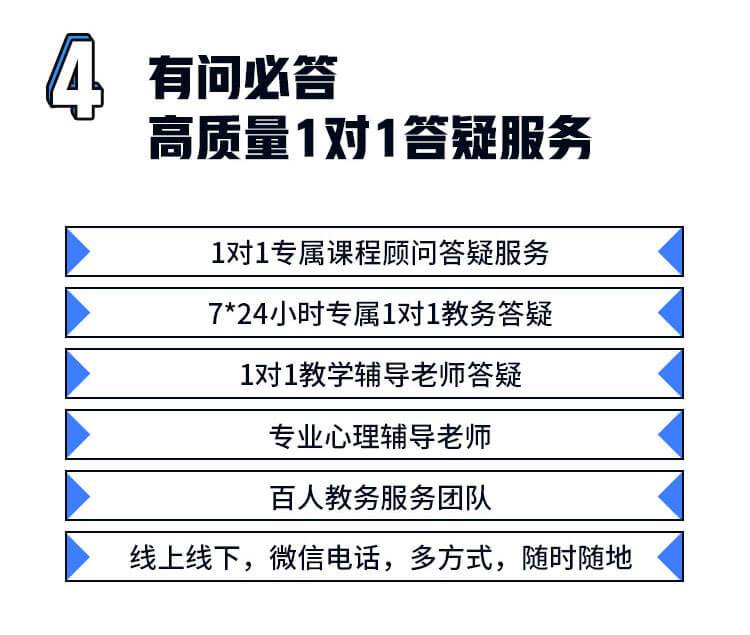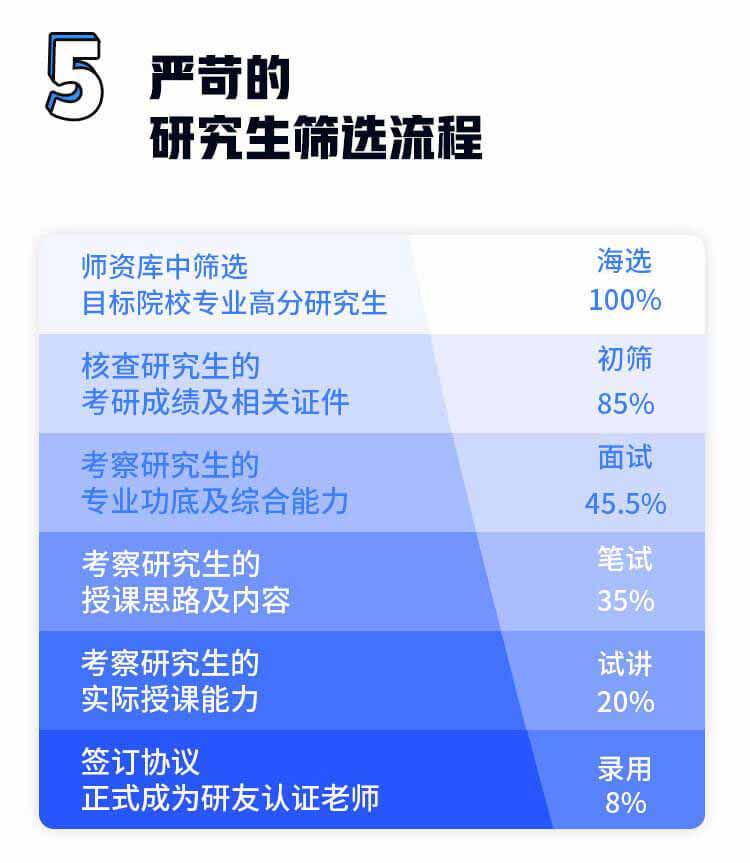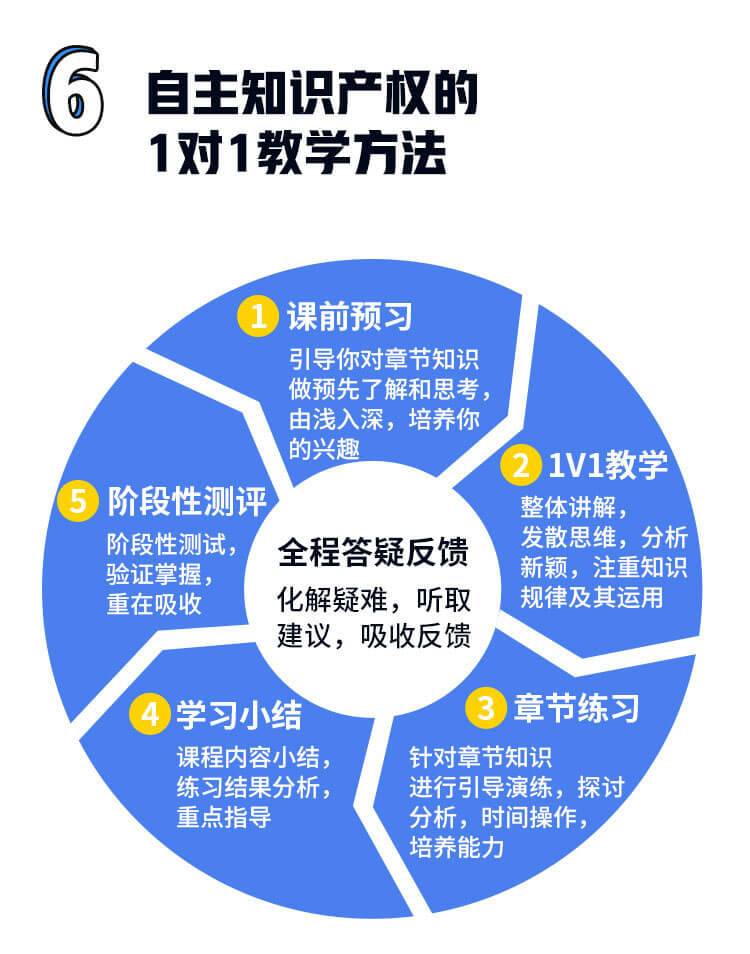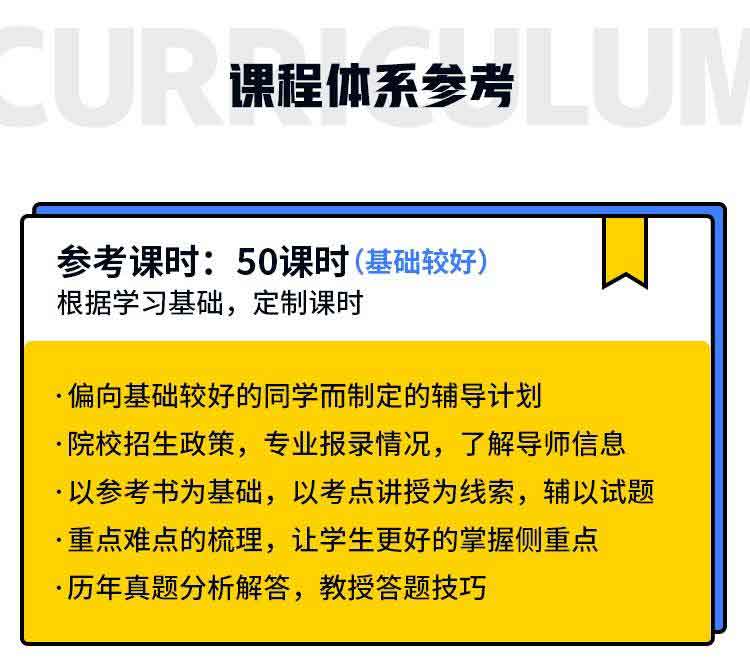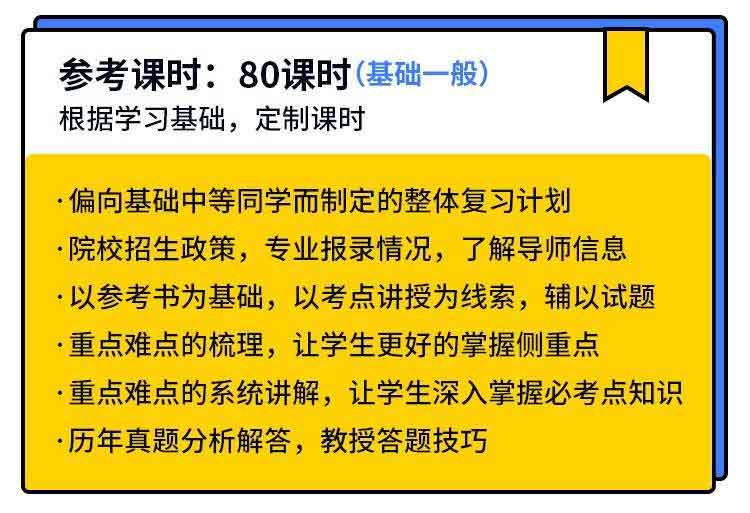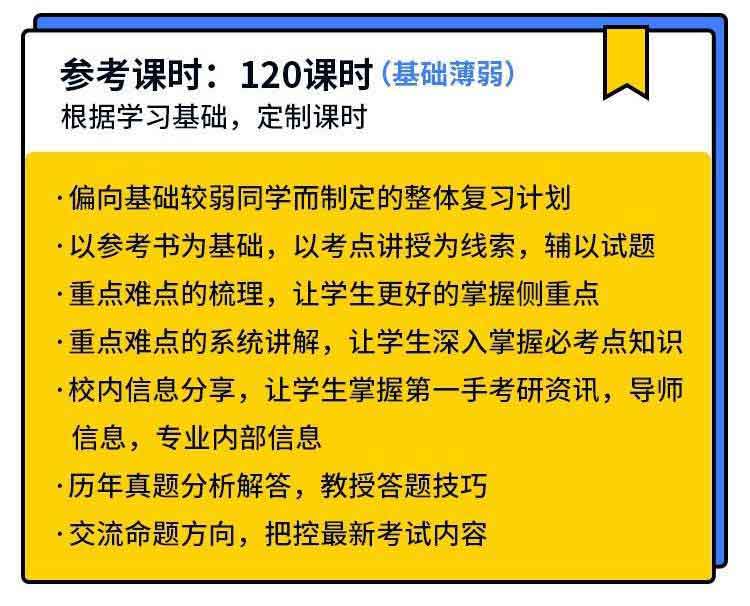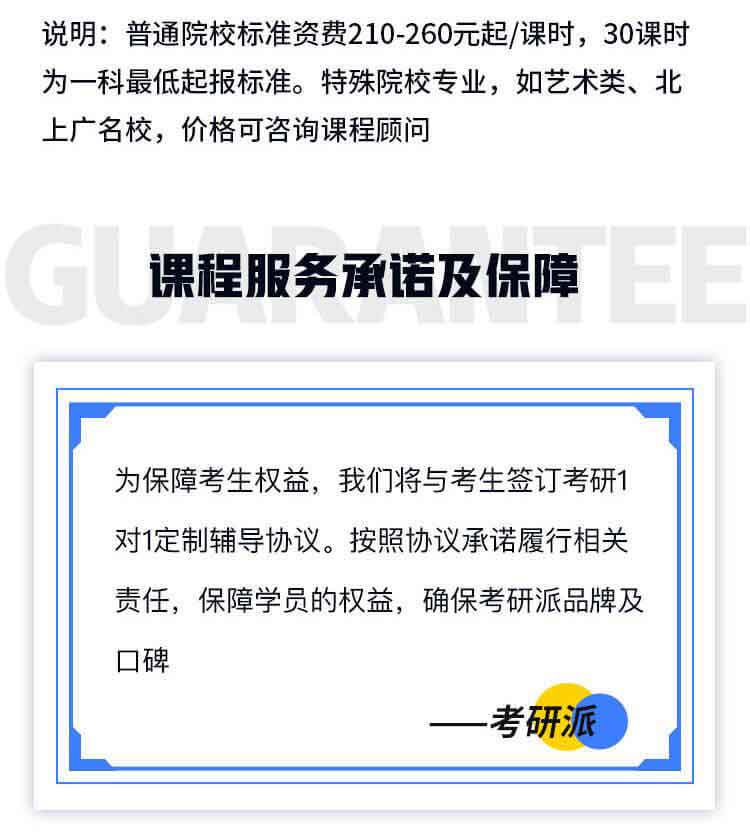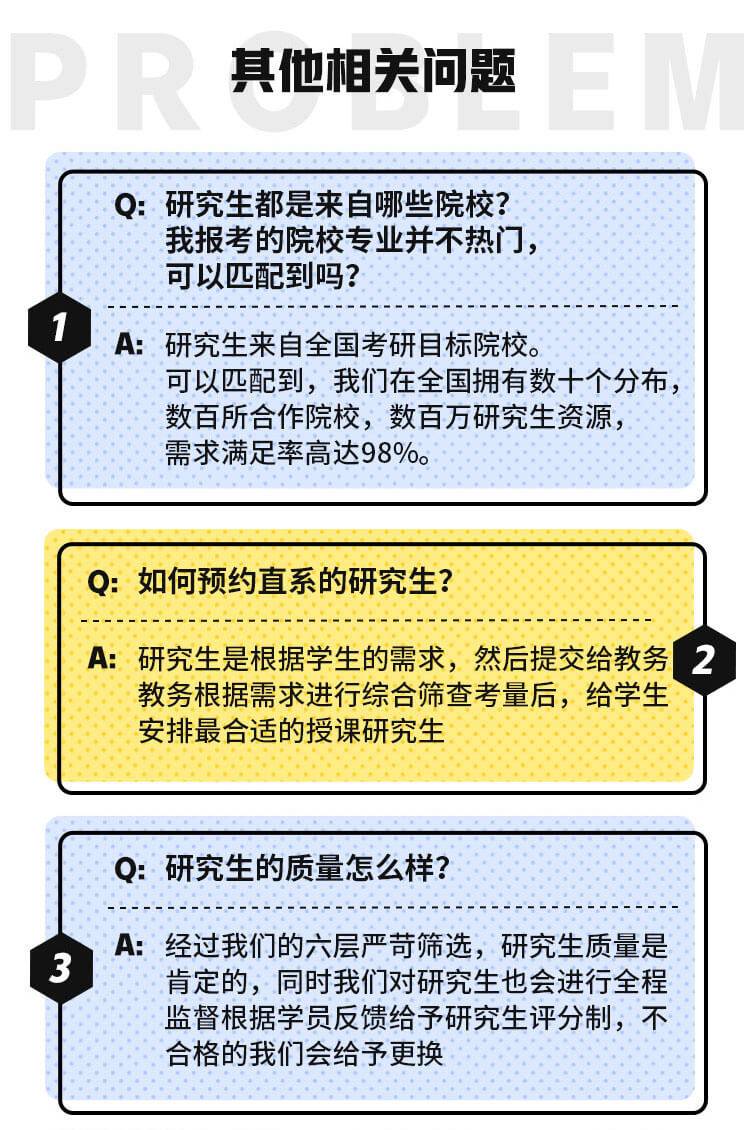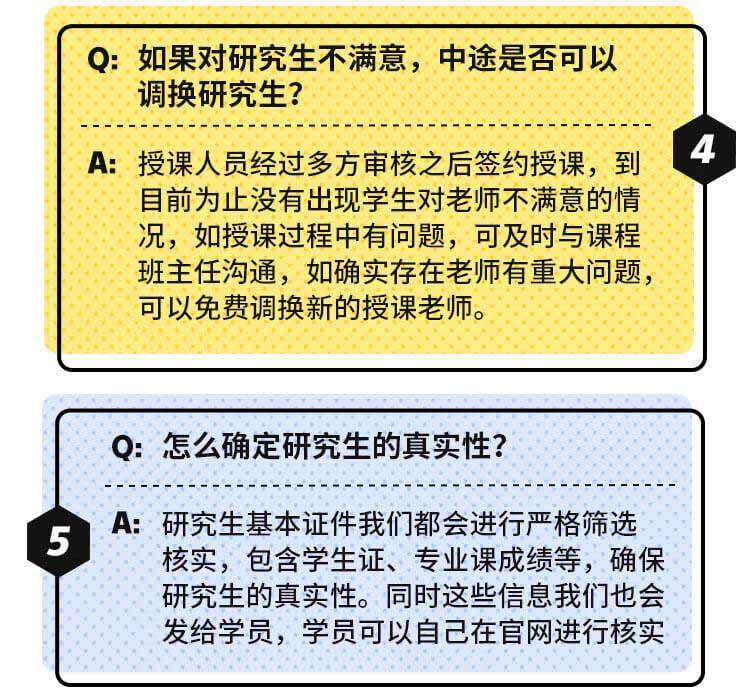青岛科技大学环境科学与工程研究生辅导
微信搜索公众号“考研派之家”,关注【考研派之家】微信公众号,在考研派之家微信号输入【青岛科技大学考研分数线、青岛科技大学报录比、青岛科技大学考研群、青岛科技大学学姐、青岛科技大学考研真题、青岛科技大学专业目录、青岛科技大学排名、青岛科技大学保研、青岛科技大学公众号、青岛科技大学研究生招生)】即可在手机上查看相对应青岛科技大学考研信息或资源。
青岛科技大学微信
找研究生辅导

青岛科技大学环境科学与工程研究生辅导 对考生来说,是一个非常重要的高效考研方法,青岛科技大学环境科学与工程研究生辅导,研究生会根据情况提供部分考研资料等,并根据学员的情况制定复习计划和划出考研的重难点,并有答疑解惑的课程设置,让你的学习更有效率,尤其是学长学姐更了解本专业导师的一些情况,历年出题的规律,会让你的备考事半功倍,花更少的时间取得更多的成绩进步。最后考研派祝您如愿考取环境科学与工程的研究生。
因为青岛科技大学环境科学与工程专业研究生数量有限,愿意做考研辅导的数量不确定,请加我们顾问的微信进行咨询和确认,抢先预订研究生,以免错失研究生辅导机会。
青岛科技大学微信
研究生为你答疑,送资源

青岛科技大学环境科学与工程专业考研录取分数线对于考生来说是一个非常重要的数据信息,因为研究生录取分数线直接就决定了考生需要考取考多少分才能达到成功被院校录取的一个最低标准,这也是考生在备考过程中的一个奋斗的目标和计划的基准。另外,考研录取分数线也是考生在前期择校、择专业的一个判断依据,如果考研录取分数线过高的话,对于基础相对较差的考生就会有一定的难度,考生可以进行自我衡量能否达到最低分数的要求而进行合理的选择。如果青岛科技大学环境科学与工程考研录取分数线(尤其是历年分数线和复试分数线)相对而言较低的话,对于考生来说成功的几率就会比较大,备考过程也会相对的容易。考生获取青岛科技大学环境科学与工程分数线的途径有很多:研究生官网上通常会有详细的历年分数线情况,考研网站、论坛上也会有相关的资源。考研派的中就为大家总结了详细的青岛科技大学环境科学与工程录取分数线情况,以供大家选择使用。最后考研派祝您如愿考取环境科学与工程的研究生。

环境科学与工程 [083000] 学术学位
专业信息
-
所属院校:青岛科技大学
-
招生年份:2020年
-
招生类别:全日制研究生
-
所属学院:环境学院
-
所属门类代码、名称:[08]工学
-
所属一级学科代码、名称:[30]环境科学与工程
专业招生详情
| 研究方向: |
01 环境科学
02 环境工程 |
|
| 招生人数: |
20 |
|
| 考试科目: |
①101 思想政治理论
②201 英语一
③302 数学二
④811 环境化学或 813 水污染控制工程 |
|
| 备 注: |
同等学力加试:环境
监测、环境仪器分析
复试笔试科目:环境
学 |
环境科学与工程 学科硕士研究生培养方案
发布时间:2019-04-29 作者: 来源:
专业代码: 0830 学科门类: 工学(08)
Code of Specialty: 0830 Department of Discipline: Engineering Dept (08)
一级学科: 环境科学与工程 学分要求: 35
First-grade Discipline: Environmental Science and Engineering Credit Setting: 35
一、学科、专业简介 (Disciplines Instruction)
青岛科技大学于2000年起先后组建环境科学和环境工程本科专业。2006年经化学院、化工学院和材料学院相关专业优化整合,成立环境与安全工程学院。2006年获得环境科学和环境工程两个专业二级硕士学位授予权,2010年获得环境科学与工程一级学科硕士学位授予权。2013年获批安全与环境功能材料二级学科博士学位授予权。本学科拥有山东省高等学校骨干学科建设项目“环境与安全教学实验中心”、中央与地方共建项目“化工安全与环境特色实验室”、中央财政支持地方高校建设项目“化工过程安全与污染控制实验室”以及青岛市化工污染控制与资源化工程研究中心。本学科已经建立起一支数量适中、结构比较合理的专业专职教师队伍,专职教师共33名。其中教授6名,副教授19名,博士生导师2名。其中32人具有博士学位,9人具有海外经历。目前环境学科硕士生在校人数60人。本学科研究生毕业后进入各类生产企业、环保公司、设计院或学校从事环境领域相关的工程、管理、教学、科研、咨询服务等工作,部分学生继续攻读博士学位。
Environmental science and environmental engineering were successively set up in Qingdao university of Science and Technology from 2000. The College of Environment and Safety Engineering (CESE) was established in 2006 based on the faculties from the College of Chemistry and Molecular Engineering, the College of Chemical Engineering and the College of Materials Science and Engineering. CESE has been qualified to grant the master degree for environmental science and environmental engineering of grade II division in 2006, then environmental science and engineering (ESE) of grade I division in 2010. In 2013, CESE has been qualified to grant the doctor degree in safety and environmental function materials for grade II division. ESE has a Shandong University Key Discipline Project “Teaching Experimental Center for Environment and Safety”, a Central and Local Government Joint Development Project “Special Laboratory for Chemical Safety and Environment”, a Central Government Supporting Local University Built Project “Laboratory for Chemical Process Safety and Pollution Control” , and a research center of Qingdao for chemical pollution control and resource reuse.
At present, ESE faculty has a high-level teaching and research team. There are 33 teachers including 6 professors, 19 associate professors. A total of 32 teachers have doctor degree. There are 60 graduate students studying now. Most of the post-graduate join in various enterprises, environmental companies, designing institutes, universities or colleges and other organizations to conduct the various work about environmental issues such as engineering, management, teaching, research and technology service. Additionally, some post-graduate pursues Ph.D. degree after graduate to polish their abilities.
化工行业在国民经济中占有重要地位,但如何防治以化工为首的工业污染问题已成为实现可持续发展的关键。以山东省新旧动能转换的要求为主线,针对山东省乃至全国化工行业的可持续发展问题,本学科结合环境保护领域的国际科技前沿发展趋势以及地方经济社会发展面临的本领域重大关键性、基础性的科技问题,以“化工污染防治与资源化”为核心,以新技术、新产业、新业态、新模式为核心,强化本学科前瞻性基础研究、引领性原创研究和应用基础研究。围绕区域可持续发展、产业可持续发展以及国家生态文明建设,形成了化工废水污染控制与资源化、大宗工业固体废弃物处置与资源化、大气污染控制技术、环境污染监测、风险评价与生态修复以及环境管理与政策五个研究方向,各个方向既有明确分工,又有相互交叉和合作,共同围绕“化工污染控制与资源化”这一中心开展科学研究和技术开发。
Chemical industries play an important role in national economy. However, how to solve the chemical pollution has become a key for the realization of sustainable development. ESE faculty meet the requirements in shifting the growth model and replacing old growth drivers with new ones at Shandong. In view of the sustainable development of chemical industries in Shandong and the whole country, ESE combines the emerging trend of environmental science and technology and the key scientific and technological problems in the field of local economic development. According to the core of the prevention and control of chemical pollution, new technologies, new industries, new models should be strengthened, and fundamental research, leading originality research and applied research should be also strengthened.
Around the regional sustainable development and the national ecological civilization construction, five research directions have been formed, i.e. chemical wastewater control and resource reuse, disposal and resource reuse of the bulk industrial solid waste, air pollution control technology, environmental pollution monitoring, risk assessment and ecological restoration, and environmental management and policy. In all directions, we have clear division of labor and cooperation with each other, and jointly carry out scientific research and technological development around the issue of chemical pollution control and resource reuse.
本学位点近五年承担了150余项科研项目,包括国家自然科学基金、国家社会科学基金、国家重点研发计划子课题等国家级项目15项,环保部环境技术管理项目、山东省重点研发计划和科技发展计划项目、山东省自然科学基金等省部级项目32项,近五年到账科研经费总额1230余万元,师均科研经费7万元/年。发表论文200余篇,其中SCI、EI收录100余篇;获国家发明专利19项。承担了一批企业污染治理及清洁生产项目,加强了学科发展与社会需求互动,为进一步服务于当地经济的可持续发展奠定了良好的基础。
In recent 5 years, the teachers majored in environment completed a total of 100 research projects. More than 20 projects are funded by Ministry of Science and Technology, National Natural Science Foundation of China, and National Social Science Foundation of China. Furthermore, there are 15 projects of provincial or ministerial level. Research funding attracted over 12 M¥. Each teacher is allocated more than 70 thousand yuan per year. A total of 200 papers were published. Among them, more than 100 papers were indexed by SCI or EI. Additionally, 16 invention patents were granted by the authority. Additionally, a large variety of industrial projects about pollution control and cleaner production were completed successfully, which enhance the communication between university and enterprise leading to an important base for the further service in the local sustainable development.
二、培养目标( Objectives of Training)
[1] 了解马克思主义毛泽东思想的基本原理,领会邓小平理论,坚持四项基本原则,热爱祖国、遵纪守法、坚持真理、具备严谨的科学态度和优良的职业道德。
To know the basic principles of Marxism and Mao Zedong Thought, to understand Deng Xiaoping Theory, to adhere to the Four Cardinal Principles and patriotism, to observe the disciplines and obey the laws, to persistently uphold the truth and to observe the rigorous scientific approach and excellent professional ethic.
[2] 具有较强的环境意识,德、智、体全面发展,成为能够为我国可持续发展和生态文明建设作出贡献的环境保护专门人才。
To have a strong environmental consciousness, to promote all round development of moral, intellectual and physical education and to grow into specialists of environmental protection that will contribute to the sustainable development and national ecological civilization.
[3] 具备扎实的基础知识及解决实际环境问题的技能和能力;了解和熟悉环境专业的发展动态及学术进展;具备独立从事环境科学理论、污染防治技术研究、环保设备开发及成果转化的能力。
To possess solid fundamental knowledge and have the skills and capacity to solve environmental issues, to understand and be familiar with the professional and academic progress of environment development and to have the capabilities of independent technology research in pollution prevention, environmental protection facility development and achievements conversion.
[4] 掌握一门外语,具备良好的国内外学术交流能力,能熟练使用外语阅读专业书籍、查阅文献并撰写论文。
To master a foreign language, to have a good capability of domestic and international academic exchange and to apply the foreign language in reading professional books, consulting literature and writing scientific papers.
三、学制及学习年限(Educational System and Length of Schooling)
硕士研究生学制为3年,学习年限不超过4年。其中课程学习一般为1~2学期,论文研究工作不少于1年;硕士生课程学习实行学分制,总学分为35-37学分,修课学分≥27,其中学位课程≥18学分;研究环节8学分,其余为选修课学分。
Three-year educational system is adopted and the length of schooling should not be beyond 4 years. The general time length for courses is 1~2 terms and at least 1 year should be spend on the research work of thesis. The credit points system is adopted in studying the postgraduate courses. The postgraduates must complete the courses of 35~37 credit points, including the degree courses of ≥18 credit points and the research section of 8 credit points.
四、研究方向 (Research Topics)
序号
No.
名 称
topics
研究方向及特点
Research topics and their descriptions
1
大宗工业固体废弃物处置与资源化
disposal and resource reuse of the bulk industrial solid waste
以工业固体废物和电子废弃物为对象,重点开展大宗固废无害化和资源化过程中的物理、化学和生物技术等研究。
Taking industrial solid waste and waste household electrical appliances as the case, this topic focuses on physical, chemical and biological technologies in the process of harmless and resource reuse of the bulk solid waste.
2
化工废水污染控制与资源化
chemical wastewater control and resource reuse
以化工废水、城市污水净化与资源化为对象,重点开展高级氧化技术、新型“厌氧-倒置多级A/O”生物强化技术、功能微生物筛选等方面研究。
With chemical wastewater and municipal wastewater purification and resource reuse, this topic focuses on advanced oxidation technologies, new anaerobic - inverted multistage A/O biological strengthening technology, and functional microorganism screening.
3
大气污染控制技术
air pollution control technology
以改善环境空气质量并瞄准国际大气污染控制科学发展前沿为目标,重点开展烟气中颗粒和气态污染物的新型净化技术及原理、有机废气处理技术等研究。
In order to improve the air quality and aim at the frontier of the air pollution control, this topic focused on the new purification technologies and principles of particulate and gaseous pollutants in the flue gases, and the treatment technologies of organic waste gases.
4
环境影响评价与生态修复
environmental impact assessment and ecological restoration
以环境污染监测、风险评价与生态修复为目标,重点开展污染物在环境中的迁移和转化规律、痕量污染物质监测、环境质量和污染现状评价、生态修复技术等研究。
On the basis of environmental pollution monitoring, risk assessment and ecological restoration, this topic focuses on the pollutants migration and transformation in the environment, the trace pollutants monitoring, the environmental quality and pollution status assessment, and the ecological remediation technologies.
5
环境管理与政策
environmental management and policy
以促进区域经济与生态环境协调发为目标,重点开展环境法规与政策的制定与实施、环境管理体制、循环经济、能源与全球气候变化、环境系统分析等研究。
In order to promote the coordination of regional economy and the environment, this topic focuses on the development and implementation of environmental regulations and policies, environmental management system, circular economy, energy and global climate change, environmental system analysis, and so on.
五、课程设置(Course Setting)
六、论文的要求(Dissertation Requirements)
科学研究是研究生培养的必要组成部分,是提高研究生培养质量的关键环节。学位论文的选题应体现本学科领域的前沿性和先进性,一般要与导师的科研任务相结合。鼓励研究生在导师指导下,通过阅读文献资料,自主选题。学位论文要有开题报告,中期检查、论文答辩等过程,有明确的时间安排。在学期间发表论文或取得成果达到《青岛科技大学研究生科研成果审核办法及指标》的要求;至少1篇与学位论文有关的SCI期刊论文(青岛科技大学为第一署名单位;学生第一作者导师为通讯作者,或导师第一作者学生第二作者)。
Research work is the required section for master education, considered as the key mean to guarantee the quality of post-graduate. The topic selection should exhibit the characteristics of advance in environmental science and engineering and it is better to take the research task from the tutor into account. Furthermore, the free topic selection after reviewing literature is also encouraged under the help from the tutor. The dissertation work include several steps such as thesis proposal, medium-term assessment and thesis oral defense. Each step is arranged with an explicit schedule. Publishing papers or achievements should meet the requirements of "Approaches and Indicators for Examining Graduate Research Achievements of Qingdao University of Science and Technology". Each master student is required to publish one paper indexed by SCI as the first author (the tutor acts as the corresponding author) or as the second author (the tutor acts as the first author). In both of cases, the affiliation of the first author MUST be Qingdao University of Science and Technology.
盲评制度。论文在答辩前要请两位在环境科学与工程领域有较深造诣的专家评阅,且其中至少有一位是外校专家。论文答辩应由校内外专家组成的答辩委员会主持进行。通过答辩者,准予毕业,并由校学位委员会批准,授予硕士学位。
Blind evaluation system. Prior to the thesis oral defense, the thesis must be subjected to an assessment done by two experts majored in environmental science and engineering, and at least one of the two experts comes from outside of the university. Thesis defense committee composed of the experts host the proceedings. The student who pass thesis oral defense will graduate and achieve the master degree after approved by the degree committee.
基本信息
专业名称:环境科学与工程 专业代码:077600 门类/类别:理学 学科/类别:环境科学与工程
专业介绍
沈阳大学为例
环境科学与工程一级学科2011年获批硕士学位授予点,2012年通过“服务国家特殊需求博士人才培养项目”,成为拥有博士学位授予权的一级学科,建立了完善的硕-博和留学生培养体系。
本学科坚持强化特色、突出重点,瞄准国内外学科的前沿,结合地方经济社会可持续发展对环境保护技术的需求,立足辽宁,辐射全国,以解决区域(辽沈地区)重大生态环境问题为目标,以城市、农村、矿区水-土污染环境介质为研究对象,应用生态学原理,结合环境工程措施开展科学研究,为我国生态环境科学研究提供原始积累,为地方环保提供高新污染控制技术和方法,为东北老工业基地环境改善与区域环境可持续发展培育高水平科研创新应用型人才。
本学科共有专任教师40人,其中博士生导师4人;硕士生导师28人;教授11人,占教师总数的28%;副教授22人,占教师总数的55%;具有博士学位的教师38人,占教师总数的95%。人才层次上长江学者1人,国务院特殊政府津贴1人,辽宁省优秀专家1人,辽宁省攀登学者1人,辽宁省百千万人才7人,5人获辽宁省青年学者成长计划支持;并于2010年和2014年分别获得辽宁省教育厅高校创新团队项目资助。
近五年来本学科共承担十二五重大水专项、973子课题、国家支撑计划、国家自然科学基金等各级科研课题170项,累计科研经费8500余万元。共发表各级学术论文200余篇,其中SCI/EI论文50余篇, CSCD论文60余篇,授权专利32项,出版专著5本。多次获辽宁省科技进步奖、沈阳市科技进步奖。
专业点分布
大连大学 沈阳大学 沈阳化工大学 大连工业大学 长春理工大学 哈尔滨商业大学 上海海洋大学 南京信息工程大学 南昌航空大学 东华理工大学 中山大学 仲恺农业工程学院
专业院校排名
本一级学科中,全国具有“博士授权”的高校共 60 所,本次参评57 所;部分具有“硕士授权”的高校 也参加了评估;参评高校共计 155 所(注:评估结果相同的高校排序不分先后,按学校代码排列)。
|
序号 |
学校代码 |
学校名称 |
评选结果 |
|
1 |
10003 |
清华大学 |
A+ |
|
2 |
10213 |
哈尔滨工业大学 |
A+ |
|
3 |
10247 |
同济大学 |
A+ |
|
4 |
10001 |
北京大学 |
A |
|
5 |
10027 |
北京师范大学 |
A |
|
6 |
10284 |
南京大学 |
A |
|
7 |
10335 |
浙江大学 |
A |
|
8 |
10005 |
北京工业大学 |
A- |
|
9 |
10055 |
南开大学 |
A- |
|
10 |
10056 |
天津大学 |
A- |
|
11 |
10141 |
大连理工大学 |
A- |
|
12 |
10248 |
上海交通大学 |
A- |
|
13 |
10294 |
河海大学 |
A- |
|
14 |
10358 |
中国科学技术大学 |
A- |
|
15 |
10561 |
华南理工大学 |
A- |
|
16 |
10008 |
北京科技大学 |
B+ |
|
17 |
10246 |
复旦大学 |
B+ |
|
18 |
10251 |
华东理工大学 |
B+ |
|
19 |
10286 |
东南大学 |
B+ |
|
20 |
10384 |
厦门大学 |
B+ |
|
21 |
10422 |
山东大学 |
B+ |
|
22 |
10423 |
中国海洋大学 |
B+ |
|
23 |
10486 |
武汉大学 |
B+ |
|
24 |
10487 |
华中科技大学 |
B+ |
|
25 |
10491 |
中国地质大学 |
B+ |
|
26 |
10532 |
湖南大学 |
B+ |
|
27 |
10558 |
中山大学 |
B+ |
|
28 |
10610 |
四川大学 |
B+ |
|
29 |
10611 |
重庆大学 |
B+ |
|
30 |
10674 |
昆明理工大学 |
B+ |
|
31 |
10703 |
西安建筑科技大学 |
B+ |
|
32 |
10010 |
北京化工大学 |
B |
|
33 |
10019 |
中国农业大学 |
B |
|
34 |
10108 |
山西大学 |
B |
|
35 |
10151 |
大连海事大学 |
B |
|
36 |
10183 |
吉林大学 |
B |
|
37 |
10255 |
东华大学 |
B |
|
38 |
10269 |
华东师范大学 |
B |
|
39 |
10280 |
上海大学 |
B |
|
40 |
10288 |
南京理工大学 |
B |
|
41 |
10290 |
中国矿业大学 |
B |
|
42 |
10299 |
江苏大学 |
B |
|
43 |
10337 |
浙江工业大学 |
B |
|
44 |
10497 |
武汉理工大学 |
B |
|
45 |
10596 |
桂林理工大学 |
B |
|
46 |
10732 |
兰州交通大学 |
B |
|
47 |
10006 |
北京航空航天大学 |
B- |
|
48 |
10022 |
北京林业大学 |
B- |
|
49 |
10079 |
华北电力大学 |
B- |
|
50 |
10112 |
太原理工大学 |
B- |
|
51 |
10270 |
上海师范大学 |
B- |
|
52 |
10295 |
江南大学 |
B- |
|
53 |
10300 |
南京信息工程大学 |
B- |
|
54 |
10403 |
南昌大学 |
B- |
|
55 |
10406 |
南昌航空大学 |
B- |
|
56 |
10476 |
河南师范大学 |
B- |
|
57 |
10533 |
中南大学 |
B- |
|
58 |
10619 |
西南科技大学 |
B- |
|
59 |
10698 |
西安交通大学 |
B- |
|
60 |
10700 |
西安理工大学 |
B- |
|
61 |
10710 |
长安大学 |
B- |
|
62 |
10712 |
西北农林科技大学 |
B- |
|
63 |
11414 |
中国石油大学 |
B- |
|
64 |
10002 |
中国人民大学 |
C+ |
|
65 |
10016 |
北京建筑大学 |
C+ |
|
66 |
10058 |
天津工业大学 |
C+ |
|
67 |
10145 |
东北大学 |
C+ |
|
68 |
10291 |
南京工业大学 |
C+ |
|
69 |
10307 |
南京农业大学 |
C+ |
|
70 |
10332 |
苏州科技大学 |
C+ |
|
71 |
10359 |
合肥工业大学 |
C+ |
|
72 |
10361 |
安徽理工大学 |
C+ |
|
73 |
10427 |
济南大学 |
C+ |
|
74 |
10559 |
暨南大学 |
C+ |
|
75 |
10730 |
兰州大学 |
C+ |
|
76 |
11799 |
重庆工商大学 |
C+ |
|
77 |
11845 |
广东工业大学 |
C+ |
|
78 |
10004 |
北京交通大学 |
C |
|
79 |
10011 |
北京工商大学 |
C |
|
80 |
10082 |
河北科技大学 |
C |
|
81 |
10252 |
上海理工大学 |
C |
|
82 |
10292 |
常州大学 |
C |
|
83 |
10298 |
南京林业大学 |
C |
|
84 |
10353 |
浙江工商大学 |
C |
|
85 |
10386 |
福州大学 |
C |
|
86 |
10429 |
青岛理工大学 |
C |
|
87 |
10459 |
郑州大学 |
C |
|
88 |
10495 |
武汉纺织大学 |
C |
|
89 |
10504 |
华中农业大学 |
C |
|
90 |
10530 |
湘潭大学 |
C |
|
91 |
10593 |
广西大学 |
C |
|
92 |
10613 |
西南交通大学 |
C |
|
93 |
11035 |
沈阳大学 |
C |
|
94 |
10057 |
天津科技大学 |
C- |
|
95 |
10126 |
内蒙古大学 |
C- |
|
96 |
10150 |
大连交通大学 |
C- |
|
97 |
10191 |
吉林建筑大学 |
C- |
|
98 |
10216 |
燕山大学 |
C- |
|
99 |
10240 |
哈尔滨商业大学 |
C- |
|
100 |
10264 |
上海海洋大学 |
C- |
|
101 |
10357 |
安徽大学 |
C- |
|
102 |
10394 |
福建师范大学 |
C- |
|
103 |
10426 |
青岛科技大学 |
C- |
|
104 |
10538 |
中南林业科技大学 |
C- |
|
105 |
10564 |
华南农业大学 |
C- |
|
106 |
10602 |
广西师范大学 |
C- |
|
107 |
10635 |
西南大学 |
C- |
|
108 |
10697 |
西北大学 |
C- |
|
109 |
10708 |
陕西科技大学 |
C- |
|
110 |
11065 |
青岛大学 |
C- |
|
111 |
11078 |
广州大学 |
C- |
基本信息
专业名称:环境科学与工程 专业代码:083000 门类/类别:工学 学科/类别:环境科学与工程
专业介绍
北京化工大学为例
环境科学与工程学科包括环境科学、环境工程两个二级学科。我校于1998年获得“环境工程”硕士学位授予权,开始招收环境工程方向研究生。2003年获得“环境科学”硕士学位授予权。2005年获得“环境工程”二级学科博士学位和“环境科学与工程”一级学科硕士学位授予权。2012年获得“环境科学与工程”一级学科博士学位授予权。2010年“环境工程”学科被评为北京市重点学科。现设有“北京高校环境污染控制与资源化工程研究中心”和学校四大中心之一的“资源与环境研究中心”,并与化工学科一起建有“膜分离过程与技术北京市重点实验室”。全系现有教学科研人员25人,其中双聘院士1人、教授6人、副教授10人,具有博士学位者21人,占教师数的84%,有海外学习背景者15人。现有在读博士研究生10多人、硕士研究生160多人、外国留学生2人。
通过学校“211工程”三期和“985特色平台”的重点建设,环境科学与工程学科已经具备了一定的规模和较好的条件。现建有“环境工程专业实验室”,可为水污染控制、固废处理与利用、大气污染控制、环境监测与评价等方向提供较好的实验和研究条件。在北校区建有“北京高校环境污染控制与资源化工程研究中心”,为研究成果的工程转化提供了平台和基地。近年来,科学研究取得了显著进步,在研项目有国家自然科学基金项目、国家“973”计划、“863”计划、“十一五”和“十二五”科技支撑计划、中美国际合作项目、环保部和农业部公益项目、土资源部项目、农业部研究项目、教育部重点研究项目和横向课题等,年科研经费逾千万元。近些年来,在国内外发表了多篇SCI收录的高质量的研究论文(包括国际顶级期刊Science),出版教材专著10多本,其中有4本获北京市精品和“十一五”国家规划教材。此外,积极开展国际交流与合作,分别与美国加州大学、华盛顿州立大学、北卡州立大学、密西根州立大学、俄亥俄州立大学、加拿大多伦多大学、英国女王大学等国外知名高校建立了长期合作关系,包括开展合作研究、联合培养研究生等。
专业点分布
北京化工大学 清华大学 北京工业大学 北京工商大学 中国地质大学(北京) 天津城建大学 天津理工大学 河北科技大学 燕山大学 中央司法警官学院 太原科技大学 内蒙古大学 大连大学 沈阳大学 大连海事大学 沈阳理工大学 大连交通大学 沈阳化工大学 大连工业大学 吉林建筑大学 哈尔滨工业大学 上海海洋大学 华东理工大学 河海大学 南京工业大学 浙江工商大学 浙江工业大学 安徽工业大学 安徽师范大学 安徽工程大学 安徽建筑大学 华侨大学 南昌航空大学 东华理工大学 华东交通大学 济南大学 青岛理工大学 山东农业大学 中国石油大学(华东) 华北水利水电大学 河南理工大学 华中科技大学 武汉工程大学 武汉纺织大学 中国地质大学(武汉) 中南林业科技大学 广东工业大学 中山大学 仲恺农业工程学院 桂林电子科技大学 陆军勤务学院 重庆交通大学 西南科技大学 成都信息工程大学 贵州大学
专业院校排名
0830 环境科学与工程
本一级学科中,全国具有“博士授权”的高校共 60 所,本次参评57 所;部分具有“硕士授权”的高校 也参加了评估;参评高校共计 155 所(注:评估结果相同的高校排序不分先后,按学校代码排列)。
|
序号 |
学校代码 |
学校名称 |
评选结果 |
|
1 |
10003 |
清华大学 |
A+ |
|
2 |
10213 |
哈尔滨工业大学 |
A+ |
|
3 |
10247 |
同济大学 |
A+ |
|
4 |
10001 |
北京大学 |
A |
|
5 |
10027 |
北京师范大学 |
A |
|
6 |
10284 |
南京大学 |
A |
|
7 |
10335 |
浙江大学 |
A |
|
8 |
10005 |
北京工业大学 |
A- |
|
9 |
10055 |
南开大学 |
A- |
|
10 |
10056 |
天津大学 |
A- |
|
11 |
10141 |
大连理工大学 |
A- |
|
12 |
10248 |
上海交通大学 |
A- |
|
13 |
10294 |
河海大学 |
A- |
|
14 |
10358 |
中国科学技术大学 |
A- |
|
15 |
10561 |
华南理工大学 |
A- |
|
16 |
10008 |
北京科技大学 |
B+ |
|
17 |
10246 |
复旦大学 |
B+ |
|
18 |
10251 |
华东理工大学 |
B+ |
|
19 |
10286 |
东南大学 |
B+ |
|
20 |
10384 |
厦门大学 |
B+ |
|
21 |
10422 |
山东大学 |
B+ |
|
22 |
10423 |
中国海洋大学 |
B+ |
|
23 |
10486 |
武汉大学 |
B+ |
|
24 |
10487 |
华中科技大学 |
B+ |
|
25 |
10491 |
中国地质大学 |
B+ |
|
26 |
10532 |
湖南大学 |
B+ |
|
27 |
10558 |
中山大学 |
B+ |
|
28 |
10610 |
四川大学 |
B+ |
|
29 |
10611 |
重庆大学 |
B+ |
|
30 |
10674 |
昆明理工大学 |
B+ |
|
31 |
10703 |
西安建筑科技大学 |
B+ |
|
32 |
10010 |
北京化工大学 |
B |
|
33 |
10019 |
中国农业大学 |
B |
|
34 |
10108 |
山西大学 |
B |
|
35 |
10151 |
大连海事大学 |
B |
|
36 |
10183 |
吉林大学 |
B |
|
37 |
10255 |
东华大学 |
B |
|
38 |
10269 |
华东师范大学 |
B |
|
39 |
10280 |
上海大学 |
B |
|
40 |
10288 |
南京理工大学 |
B |
|
41 |
10290 |
中国矿业大学 |
B |
|
42 |
10299 |
江苏大学 |
B |
|
43 |
10337 |
浙江工业大学 |
B |
|
44 |
10497 |
武汉理工大学 |
B |
|
45 |
10596 |
桂林理工大学 |
B |
|
46 |
10732 |
兰州交通大学 |
B |
|
47 |
10006 |
北京航空航天大学 |
B- |
|
48 |
10022 |
北京林业大学 |
B- |
|
49 |
10079 |
华北电力大学 |
B- |
|
50 |
10112 |
太原理工大学 |
B- |
|
51 |
10270 |
上海师范大学 |
B- |
|
52 |
10295 |
江南大学 |
B- |
|
53 |
10300 |
南京信息工程大学 |
B- |
|
54 |
10403 |
南昌大学 |
B- |
|
55 |
10406 |
南昌航空大学 |
B- |
|
56 |
10476 |
河南师范大学 |
B- |
|
57 |
10533 |
中南大学 |
B- |
|
58 |
10619 |
西南科技大学 |
B- |
|
59 |
10698 |
西安交通大学 |
B- |
|
60 |
10700 |
西安理工大学 |
B- |
|
61 |
10710 |
长安大学 |
B- |
|
62 |
10712 |
西北农林科技大学 |
B- |
|
63 |
11414 |
中国石油大学 |
B- |
|
64 |
10002 |
中国人民大学 |
C+ |
|
65 |
10016 |
北京建筑大学 |
C+ |
|
66 |
10058 |
天津工业大学 |
C+ |
|
67 |
10145 |
东北大学 |
C+ |
|
68 |
10291 |
南京工业大学 |
C+ |
|
69 |
10307 |
南京农业大学 |
C+ |
|
70 |
10332 |
苏州科技大学 |
C+ |
|
71 |
10359 |
合肥工业大学 |
C+ |
|
72 |
10361 |
安徽理工大学 |
C+ |
|
73 |
10427 |
济南大学 |
C+ |
|
74 |
10559 |
暨南大学 |
C+ |
|
75 |
10730 |
兰州大学 |
C+ |
|
76 |
11799 |
重庆工商大学 |
C+ |
|
77 |
11845 |
广东工业大学 |
C+ |
|
78 |
10004 |
北京交通大学 |
C |
|
79 |
10011 |
北京工商大学 |
C |
|
80 |
10082 |
河北科技大学 |
C |
|
81 |
10252 |
上海理工大学 |
C |
|
82 |
10292 |
常州大学 |
C |
|
83 |
10298 |
南京林业大学 |
C |
|
84 |
10353 |
浙江工商大学 |
C |
|
85 |
10386 |
福州大学 |
C |
|
86 |
10429 |
青岛理工大学 |
C |
|
87 |
10459 |
郑州大学 |
C |
|
88 |
10495 |
武汉纺织大学 |
C |
|
89 |
10504 |
华中农业大学 |
C |
|
90 |
10530 |
湘潭大学 |
C |
|
91 |
10593 |
广西大学 |
C |
|
92 |
10613 |
西南交通大学 |
C |
|
93 |
11035 |
沈阳大学 |
C |
|
94 |
10057 |
天津科技大学 |
C- |
|
95 |
10126 |
内蒙古大学 |
C- |
|
96 |
10150 |
大连交通大学 |
C- |
|
97 |
10191 |
吉林建筑大学 |
C- |
|
98 |
10216 |
燕山大学 |
C- |
|
99 |
10240 |
哈尔滨商业大学 |
C- |
|
100 |
10264 |
上海海洋大学 |
C- |
|
101 |
10357 |
安徽大学 |
C- |
|
102 |
10394 |
福建师范大学 |
C- |
|
103 |
10426 |
青岛科技大学 |
C- |
|
104 |
10538 |
中南林业科技大学 |
C- |
|
105 |
10564 |
华南农业大学 |
C- |
|
106 |
10602 |
广西师范大学 |
C- |
|
107 |
10635 |
西南大学 |
C- |
|
108 |
10697 |
西北大学 |
C- |
|
109 |
10708 |
陕西科技大学 |
C- |
|
110 |
11065 |
青岛大学 |
C- |
|
111 |
11078 |
广州大学 |
C- |
077601环境科学与工程
基本信息
专业名称:环境科学与工程 专业代码:077601 门类/类别:理学 学科/类别:环境科学与工程
专业介绍
郑州大学为例
据郑州大学研究生招生信息网消息,2015年郑州大学077601环境科学考研专业目录及考试科目已发布,详情如下:
|
专业代码、名称及研究方向 |
指导教师 |
招生人数 |
考试科目 |
备 注 |
|
015化学与分子工程学院 |
|
237(科学学位219人,专业学位18人) |
|
|
|
077601环境科学 |
|
|
|
|
|
01生物质可再生能源利用研究 |
张瑞芹 |
|
①101思想政治理论②201英语一③606数学(理)④927环境化学 |
理工兼收,授理学学位,(考试时需携带函数计算器) |
|
02节能减排研究 |
张瑞芹 |
|
|
03环境化学与污染防治研究 |
韩润平 |
|
|
冶保献 |
|
|
韩华云 |
|
|
秦文华 |
|
|
张瑞芹 |
|
|
高镜清 |
|
|
翟贇璞 |
|
|
燕启社 |
|
|
张长森 |
|
|
刘永刚 |
|
|
李铁生 |
|
专业院校排名
本一级学科中,全国具有“博士授权”的高校共 60 所,本次参评57 所;部分具有“硕士授权”的高校 也参加了评估;参评高校共计 155 所(注:评估结果相同的高校排序不分先后,按学校代码排列)。
|
序号 |
学校代码 |
学校名称 |
评选结果 |
|
1 |
10003 |
清华大学 |
A+ |
|
2 |
10213 |
哈尔滨工业大学 |
A+ |
|
3 |
10247 |
同济大学 |
A+ |
|
4 |
10001 |
北京大学 |
A |
|
5 |
10027 |
北京师范大学 |
A |
|
6 |
10284 |
南京大学 |
A |
|
7 |
10335 |
浙江大学 |
A |
|
8 |
10005 |
北京工业大学 |
A- |
|
9 |
10055 |
南开大学 |
A- |
|
10 |
10056 |
天津大学 |
A- |
|
11 |
10141 |
大连理工大学 |
A- |
|
12 |
10248 |
上海交通大学 |
A- |
|
13 |
10294 |
河海大学 |
A- |
|
14 |
10358 |
中国科学技术大学 |
A- |
|
15 |
10561 |
华南理工大学 |
A- |
|
16 |
10008 |
北京科技大学 |
B+ |
|
17 |
10246 |
复旦大学 |
B+ |
|
18 |
10251 |
华东理工大学 |
B+ |
|
19 |
10286 |
东南大学 |
B+ |
|
20 |
10384 |
厦门大学 |
B+ |
|
21 |
10422 |
山东大学 |
B+ |
|
22 |
10423 |
中国海洋大学 |
B+ |
|
23 |
10486 |
武汉大学 |
B+ |
|
24 |
10487 |
华中科技大学 |
B+ |
|
25 |
10491 |
中国地质大学 |
B+ |
|
26 |
10532 |
湖南大学 |
B+ |
|
27 |
10558 |
中山大学 |
B+ |
|
28 |
10610 |
四川大学 |
B+ |
|
29 |
10611 |
重庆大学 |
B+ |
|
30 |
10674 |
昆明理工大学 |
B+ |
|
31 |
10703 |
西安建筑科技大学 |
B+ |
|
32 |
10010 |
北京化工大学 |
B |
|
33 |
10019 |
中国农业大学 |
B |
|
34 |
10108 |
山西大学 |
B |
|
35 |
10151 |
大连海事大学 |
B |
|
36 |
10183 |
吉林大学 |
B |
|
37 |
10255 |
东华大学 |
B |
|
38 |
10269 |
华东师范大学 |
B |
|
39 |
10280 |
上海大学 |
B |
|
40 |
10288 |
南京理工大学 |
B |
|
41 |
10290 |
中国矿业大学 |
B |
|
42 |
10299 |
江苏大学 |
B |
|
43 |
10337 |
浙江工业大学 |
B |
|
44 |
10497 |
武汉理工大学 |
B |
|
45 |
10596 |
桂林理工大学 |
B |
|
46 |
10732 |
兰州交通大学 |
B |
|
47 |
10006 |
北京航空航天大学 |
B- |
|
48 |
10022 |
北京林业大学 |
B- |
|
49 |
10079 |
华北电力大学 |
B- |
|
50 |
10112 |
太原理工大学 |
B- |
|
51 |
10270 |
上海师范大学 |
B- |
|
52 |
10295 |
江南大学 |
B- |
|
53 |
10300 |
南京信息工程大学 |
B- |
|
54 |
10403 |
南昌大学 |
B- |
|
55 |
10406 |
南昌航空大学 |
B- |
|
56 |
10476 |
河南师范大学 |
B- |
|
57 |
10533 |
中南大学 |
B- |
|
58 |
10619 |
西南科技大学 |
B- |
|
59 |
10698 |
西安交通大学 |
B- |
|
60 |
10700 |
西安理工大学 |
B- |
|
61 |
10710 |
长安大学 |
B- |
|
62 |
10712 |
西北农林科技大学 |
B- |
|
63 |
11414 |
中国石油大学 |
B- |
|
64 |
10002 |
中国人民大学 |
C+ |
|
65 |
10016 |
北京建筑大学 |
C+ |
|
66 |
10058 |
天津工业大学 |
C+ |
|
67 |
10145 |
东北大学 |
C+ |
|
68 |
10291 |
南京工业大学 |
C+ |
|
69 |
10307 |
南京农业大学 |
C+ |
|
70 |
10332 |
苏州科技大学 |
C+ |
|
71 |
10359 |
合肥工业大学 |
C+ |
|
72 |
10361 |
安徽理工大学 |
C+ |
|
73 |
10427 |
济南大学 |
C+ |
|
74 |
10559 |
暨南大学 |
C+ |
|
75 |
10730 |
兰州大学 |
C+ |
|
76 |
11799 |
重庆工商大学 |
C+ |
|
77 |
11845 |
广东工业大学 |
C+ |
|
78 |
10004 |
北京交通大学 |
C |
|
79 |
10011 |
北京工商大学 |
C |
|
80 |
10082 |
河北科技大学 |
C |
|
81 |
10252 |
上海理工大学 |
C |
|
82 |
10292 |
常州大学 |
C |
|
83 |
10298 |
南京林业大学 |
C |
|
84 |
10353 |
浙江工商大学 |
C |
|
85 |
10386 |
福州大学 |
C |
|
86 |
10429 |
青岛理工大学 |
C |
|
87 |
10459 |
郑州大学 |
C |
|
88 |
10495 |
武汉纺织大学 |
C |
|
89 |
10504 |
华中农业大学 |
C |
|
90 |
10530 |
湘潭大学 |
C |
|
91 |
10593 |
广西大学 |
C |
|
92 |
10613 |
西南交通大学 |
C |
|
93 |
11035 |
沈阳大学 |
C |
|
94 |
10057 |
天津科技大学 |
C- |
|
95 |
10126 |
内蒙古大学 |
C- |
|
96 |
10150 |
大连交通大学 |
C- |
|
97 |
10191 |
吉林建筑大学 |
C- |
|
98 |
10216 |
燕山大学 |
C- |
|
99 |
10240 |
哈尔滨商业大学 |
C- |
|
100 |
10264 |
上海海洋大学 |
C- |
|
101 |
10357 |
安徽大学 |
C- |
|
102 |
10394 |
福建师范大学 |
C- |
|
103 |
10426 |
青岛科技大学 |
C- |
|
104 |
10538 |
中南林业科技大学 |
C- |
|
105 |
10564 |
华南农业大学 |
C- |
|
106 |
10602 |
广西师范大学 |
C- |
|
107 |
10635 |
西南大学 |
C- |
|
108 |
10697 |
西北大学 |
C- |
|
109 |
10708 |
陕西科技大学 |
C- |
|
110 |
11065 |
青岛大学 |
C- |
|
111 |
11078 |
广州大学 |
C- |
环境科学与工程专业基本信息:
考生在报考专业前一定要非常了解自己报考的专业以及学校,越考在这边搜集了专业的相关信息,仅供参考。
专业名称:环境科学与工程 专业代码:077600 门类/类别:理学 学科/类别:环境科学与工程

